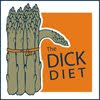“I don’t understand. I work out every day and I’m still
gaining weight.” Believe it or not I hear this question quite frequently. On
the surface it seems to be quite the paradox. All the conventional wisdom tells
us to lose weight all we need to do is watch what we eat (meaning to eat less)
and exercise more. Follow this simple formula: use more calories than you take
in.
In the past I’ve explained part of this myth - how all
calories are not created equal. Based on what the calorie is from (protein,
fat, or carbohydrate) it will have a different effect in your body. If you need
a refresher you can find that article on my blog at http://brwellness.com/nutrition-news/?p=99.
Now let’s explore the other half of the equation: exercise
more. This of course leads to a series of questions. What type of exercise is
best? How many times a week should I exercise? How long should I exercise?
Some people say “aerobic” is best. Some say weight lifting. Others
say yoga, or interval training, and still others say high intensity training.
Some tell you to do a different type of exercise every day for an hour. On the
other spectrum some will tell you once to twice a week for fifteen to twenty
minutes is all you need. You can see there is quite a variance in the answers.
To best understand any issue relating to health and
nutrition I always ask one simple question. How is the body designed?
When I discuss with clients what they should eat and what they should avoid I
just don’t say “eat this and not that.” I explain to them how their body works
and what the different foods will actually do in their body. When we understand
how our body is designed to work it makes it much easier to determine what it
needs and to separate myth from fact. Unfortunately in the world of health and
nutrition there is a lot of myth and hype which is quite different than the
facts.
Of course I am limited by the space of this article. Whole books
have been written to address these questions and I’ve read quite a few of them!
Recently I read one that I believe explains it the best – Body by Science by Doug McGuff, M.D. and John Little. With his
medical background, Dr. McGuff understands how the body is designed and he uses
this to explain the science of exercise.
My plan is to have several articles based on the book. I
will use the remainder of this article to summarize the major points of the
book. Future articles as noted below will be more in depth on specific topics. But
in the mean time, if you are interested I’d encourage you to read the book
sooner rather than later. It will likely change the way you think about
exercise! Here is a quick summary of his major points:
1.
Who can you trust? Most exercise testimonials and
a fair amount of “research” is shall we say – slightly misleading and biased
and does not address the true science of exercise.
2.
Genetic expression plays a major role in our
physical appearance. People can do similar types of exercise but in the end
their genes determine how their physical activity is expressed in their body. I
will have a separate article on this subject.
3.
Being “fit” does not mean you are healthy.
4.
High intensity training is his preferred method.
It benefits both the aerobic and anaerobic energy pathways. Most “cardio” only
works the aerobic pathway. The effectiveness of the exercise is all about
hormones and blood glucose levels. High intensity training works the major
muscle groups to exhaustion, uses up glucose, and encourages the body to burn
fat and build muscle. I will have a future article about the “cardio myth.”
5.
Fat metabolism and fat loss is also determined
by hormone activity which is affected by the type of exercise. Hormones signal
the body to burn fat and to store fat. Some exercise will produce the “burn”
signal, others the “store” signal. I will have a future article about fat
metabolism.
6.
Exercising once to twice per week for 15 to 20 minutes
when done according to his methodology is all you need to properly engage your
body and manage the body building and fat burning hormones.
As you know from past articles I am also a big believer in
“walking the talk.” I have found a local trainer who follows the basic
principles as outlined in the book and began training several weeks ago. In one
month I have already noticed several significant changes. I will keep you
posted on that as well.
Bernard Rosen, PhD is a Nutrition Consultant and
Educator. He works with individuals, groups, and at corporations to create
individualized nutrition and wellness programs. His office is in Mequon, WI. To
learn more or to schedule an appointment, e-mail at bernie@brwellness.com, call
(262) 389-9907 or go to www.brwellness.com.
.jpg)



No comments:
Post a Comment